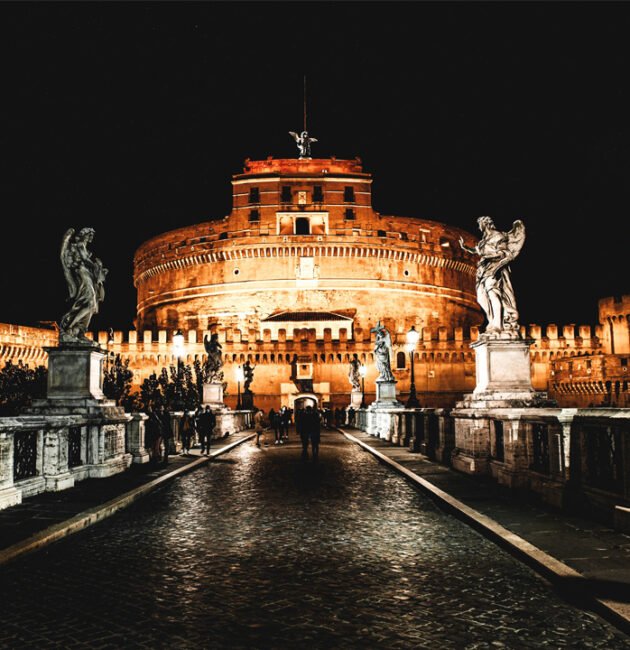Rome is a city synonymous with rich history, exquisite art, and culinary delights. But beneath its sunlit façade lies a labyrinth of shadowy secrets and eerie tales that beckon the curious traveler. For those who crave the unusual and the spine-chilling, Rome offers an array of hauntingly beautiful experiences. Let’s uncover Rome’s dark and unusual side together!
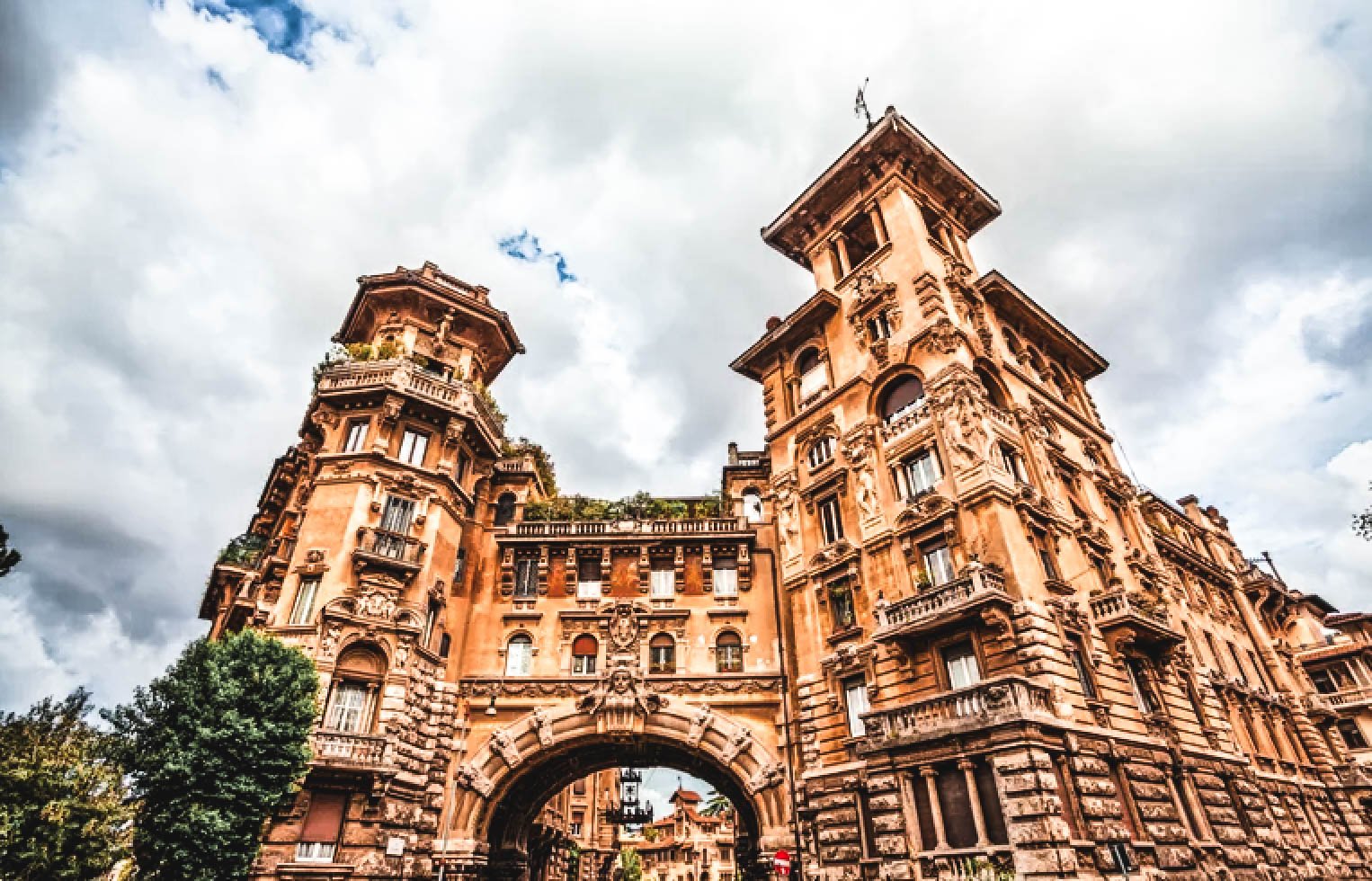
Quartiere Coppedè
The Enigmatic Quartiere Coppedè
Architectural Wonderland
Nestled within the Trieste district, Quartiere Coppedè is a bizarre architectural gem. Designed by Gino Coppedè, this fantastical neighborhood combines mythological symbols, Gothic influences, and Baroque elements. Wander through its 18 palaces and 27 villas, each telling a different story.
A Fairytale Come to Life
Imagine ivy-covered walls, fairy fountains, and marble sculptures that seem to whisper forgotten legends. Quartiere Coppedè feels like stepping into a surreal dream, far removed from the bustling streets of Rome.
Practical Tips for Visitors
Quartiere Coppedè is accessible via the Policlinico Metro Station. It’s best visited during daylight to fully appreciate its whimsical charm. Don’t forget your camera—every corner is Instagram-worthy!
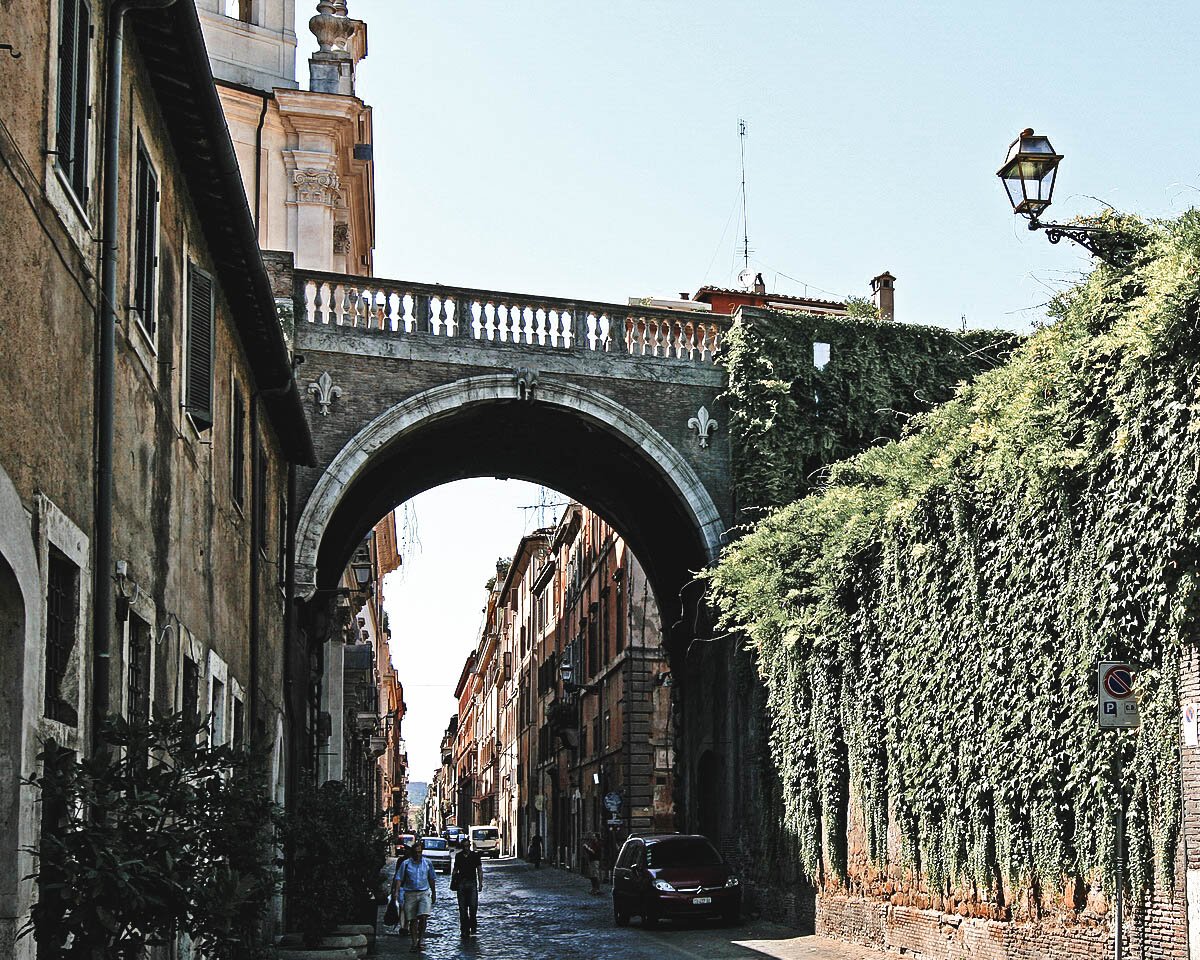
Via Giulia
The Haunting Via Giulia
A Street Steeped in History
Via Giulia, running through Rome’s historical center is the epitome of Renaissance urban planning. However, as night falls, this picturesque street reveals a darker side, where legends of witches and hauntings come alive.
The Witch of Via Giulia
According to local lore, a witch named Guila haunts this street nightly, searching for her lost daughter. Be wary—it’s said that looking her in the eyes might bring misfortune to your loved ones. This eerie tale adds a spine-tingling twist to an otherwise charming stroll.
Exploring Via Giulia
Start your visit at Piazza Farnese and walk towards the Tiber River. The street is lined with historical landmarks, including the Church of St. Mary of the Oration and Death, which leads us to our next stop.
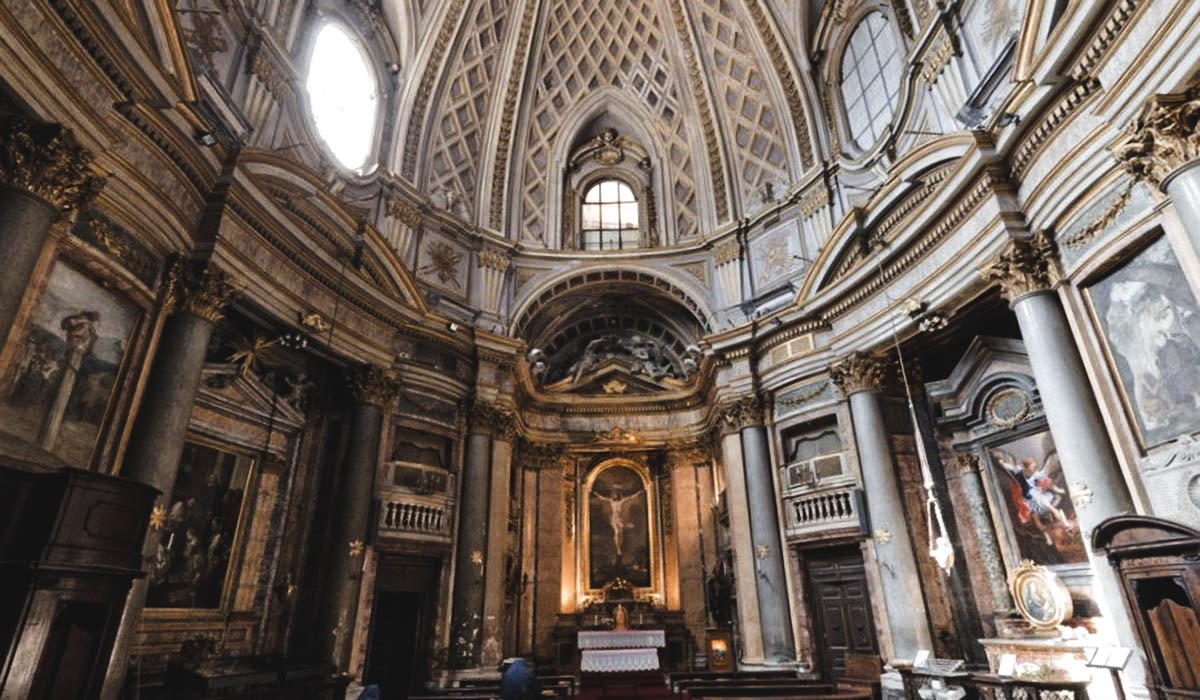
Church of St. Mary of the Oration and Death
The Macabre Church of St. Mary of the Oration and Death
A Shrine to Mortality
Built-in 1573 for the Brotherhood of Prayer and Death, this church is a stark reminder of life’s impermanence. Its entrance, adorned with a marble skull, sets the tone for what lies within.
Bone-Chilling Interiors
Inside, you’ll find morbid displays made from human bones, including a giant chandelier of skulls. The brotherhood’s mission was to collect unclaimed corpses and provide them with a proper burial, a noble yet grim endeavor.
Visiting Information
Located on Via Giulia, the church is open to visitors, though hours may vary. Photography might be restricted, so check in advance.
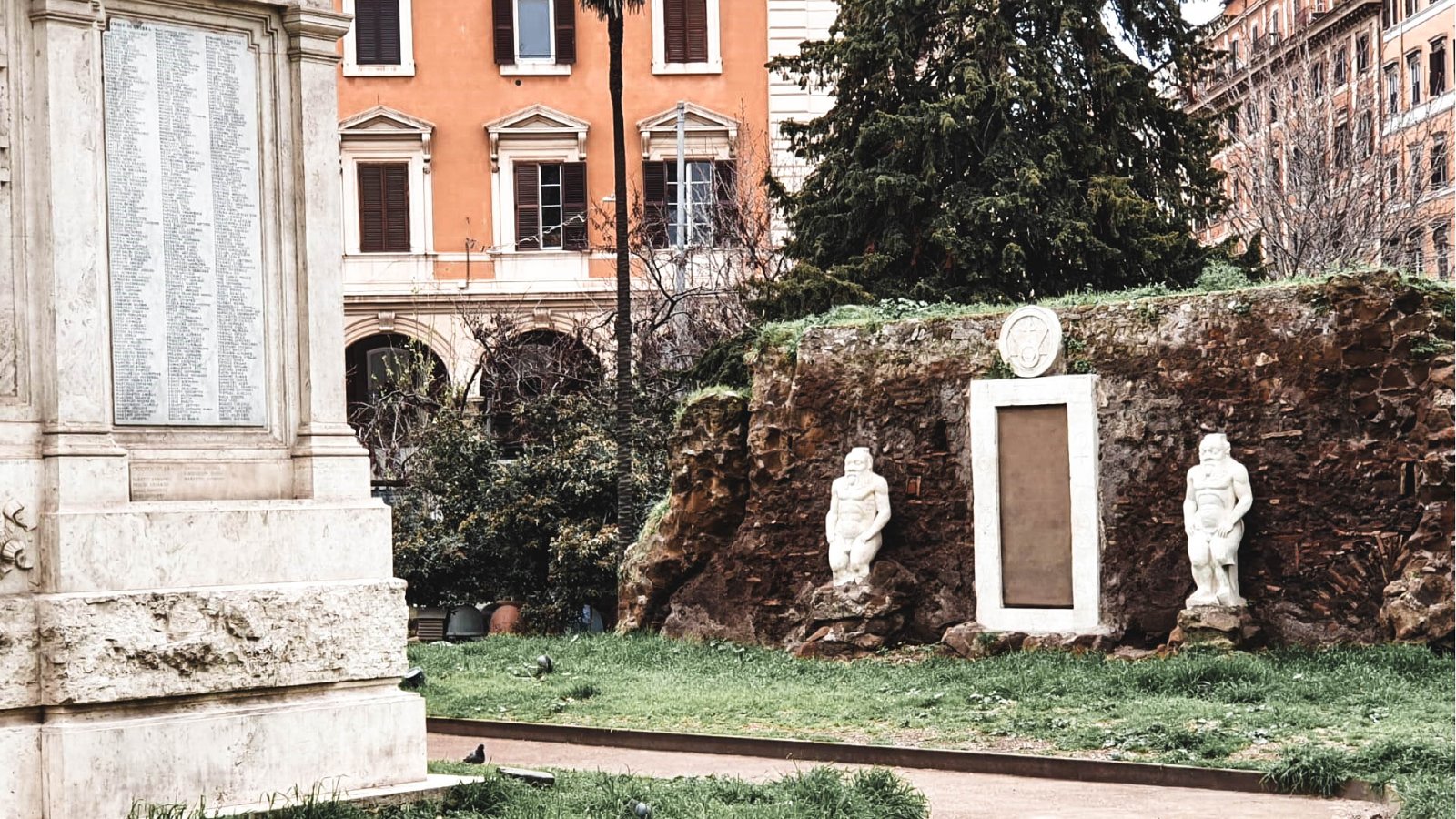
Porta Magica
The Mysterious Porta Magica
Alchemist’s Gate
Hidden in Piazza Vittorio, the Porta Magica, or Magic Gate, is shrouded in legend. Alchemic symbols cover its white surface, remnants of a time when alchemists sought the secrets of the universe.
The Legend of Giustiniani Bono
It’s said that the alchemist Giustiniani Bono disappeared through this gate, leaving behind only gold flakes and a cryptic document. The symbols engraved on the gate are believed to hold the secret of the Philosopher’s Stone.
How to Find It
The gate is in the gardens of Piazza Vittorio Emanuele II. It’s a quick visit but a must-see for history buffs and lovers of mystery.
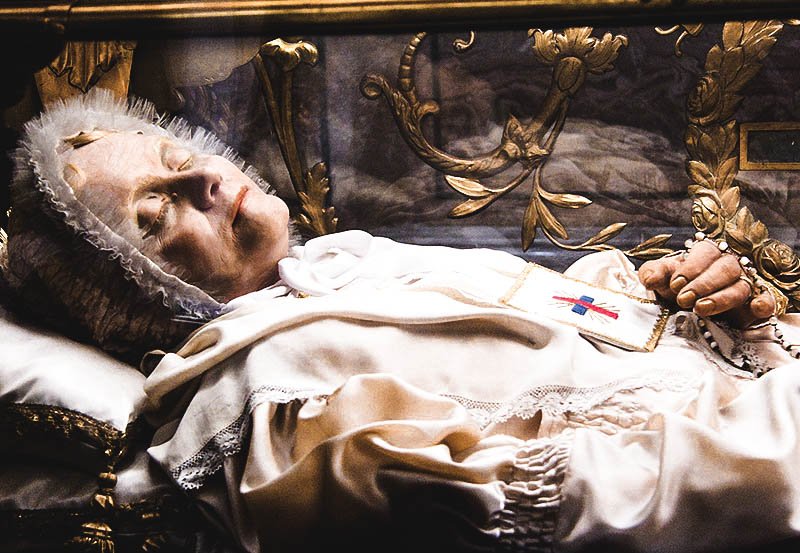
Blessed Anna Maria Roma
The Wax Remains of Blessed Anna Maria
A Unique Relic
In the Basilica of San Crisogono lies a glass coffin with the wax-covered remains of Anna Maria Taigi. Known for her mystical visions, Anna Maria is a fascinating figure in Rome’s religious history.
The Miracle of the Mystic Globe-Sun
Anna Maria reportedly saw visions within a sun-shaped globe, revealing past, present, and future events. Her wax effigy and relics attract pilgrims and curious visitors alike.
Visiting the Basilica
San Crisogono is located in Trastevere, one of Rome’s most vibrant neighborhoods. The basilica is open to the public, offering a serene escape from the surrounding hustle and bustle.
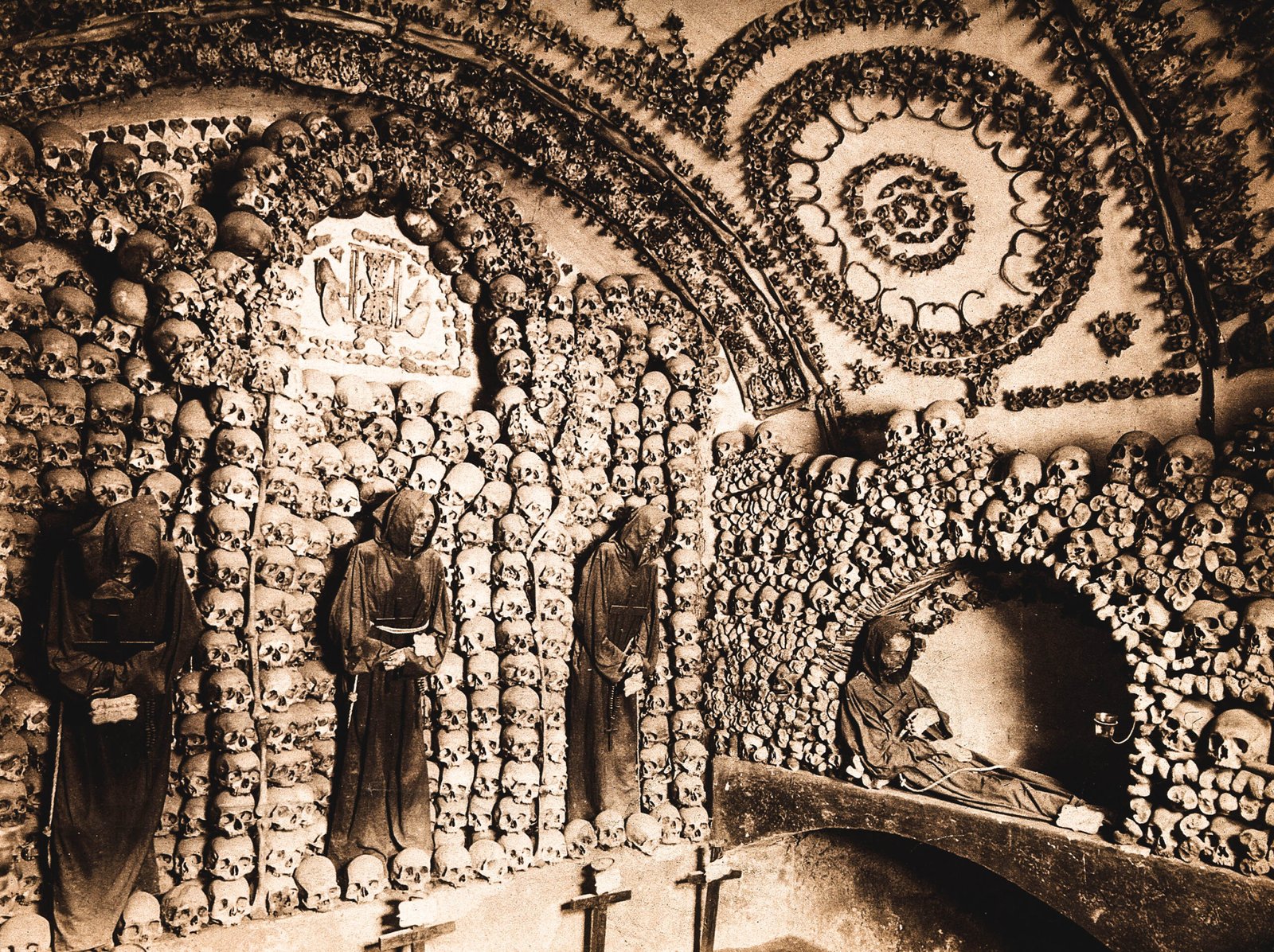
Santa Maria della Concezione
The Chilling Crypts of Santa Maria della Concezione
An Ossuary Like No Other
Beneath the church of Santa Maria della Concezione are crypts decorated with the bones of 4,000 Capuchin friars. This macabre display serves as a meditation on mortality and the afterlife.
Artistic Arrangements
The bones are arranged in intricate patterns, creating a hauntingly beautiful atmosphere. Each of the six chapels tells a different story through its unique bone designs.
Practical Information
The crypts are open to visitors, with a small entry fee. It’s a short walk from the Barberini Metro Station. Remember to maintain a respectful demeanor during your visit.
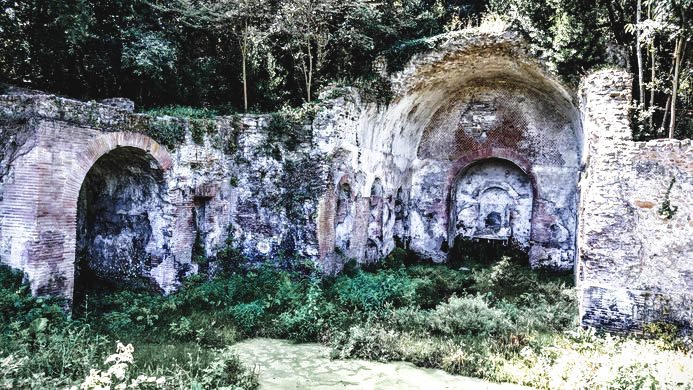
Nymphaeum of Egeria
The Legendary Nymphaeum of Egeria
A Mythical Meeting Place
According to legend, this nymphaeum is where King Numa Pompilius met the nymph Egeria to receive her counsel. Their union is said to have shaped the early foundations of Rome.
Off the Beaten Path
This spot is a hidden gem, often overlooked by tourists. Finding it requires a bit of adventure but rewards you with a serene glimpse into ancient Roman mythology.
How to Get There
Located in the Appian Way Regional Park, the nymphaeum is best reached by bike or a leisurely hike. Pack a picnic and enjoy the tranquility of this historic site.
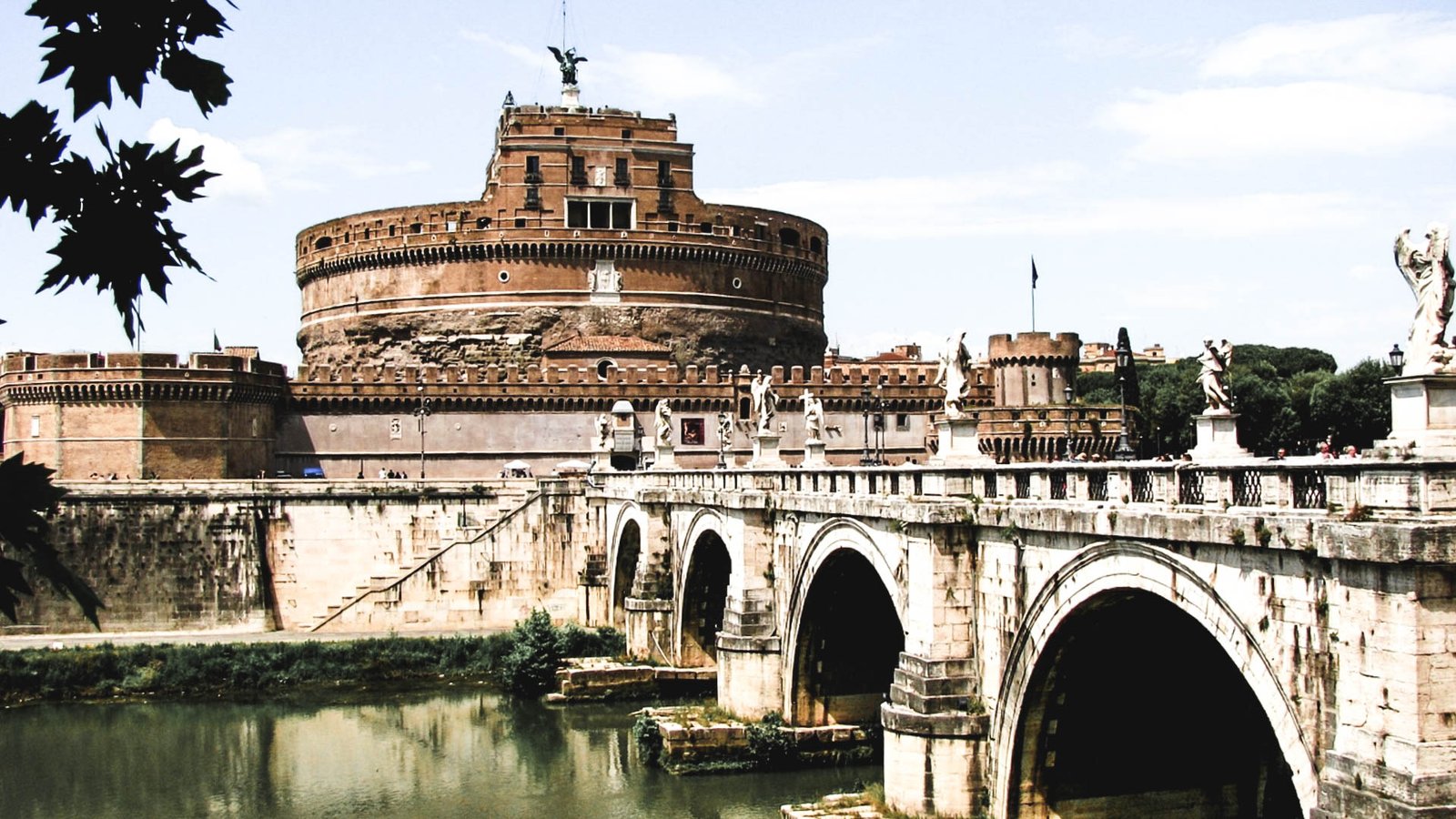
Angel Bridge
The Ghostly Angel Bridge
Rome’s Most Famous Ghost
The Angel Bridge, or Ponte Sant’Angelo, is said to be haunted by Beatrice Cenci, a young noblewoman executed for her father’s murder. Her ghost reportedly appears on the anniversary of her death.
A Haunting Tale
Beatrice’s tragic story of wrongful imprisonment and execution has captivated Romans for centuries. Spotting her ghost is believed to indicate a heart burdened with darkness.
Walking the Bridge
The bridge connects to Castel Sant’Angelo and offers stunning views of the Tiber River. It’s a popular spot for both history enthusiasts and ghost hunters.
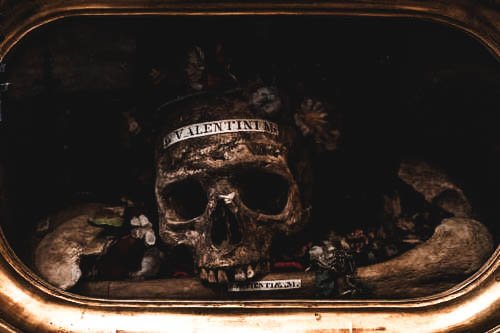
Skull of St. Valentine
The Romantic Skull of St. Valentine
A Love Story Enshrined
In the Basilica di Santa Maria in Cosmedin, you’ll find the skull of St. Valentine, the patron saint of lovers. His relics are displayed in a glass case, surrounded by flowers and mementos from visitors.
The Man Behind Valentine’s Day
Martyred in the third century, St. Valentine’s legacy lives on through the holiday that celebrates love. His skull is a poignant reminder of the enduring power of love and faith.
Seeing the Relic
The basilica is located near the Circus Maximus. It’s also home to the Bocca della Verità, another intriguing site steeped in legend.
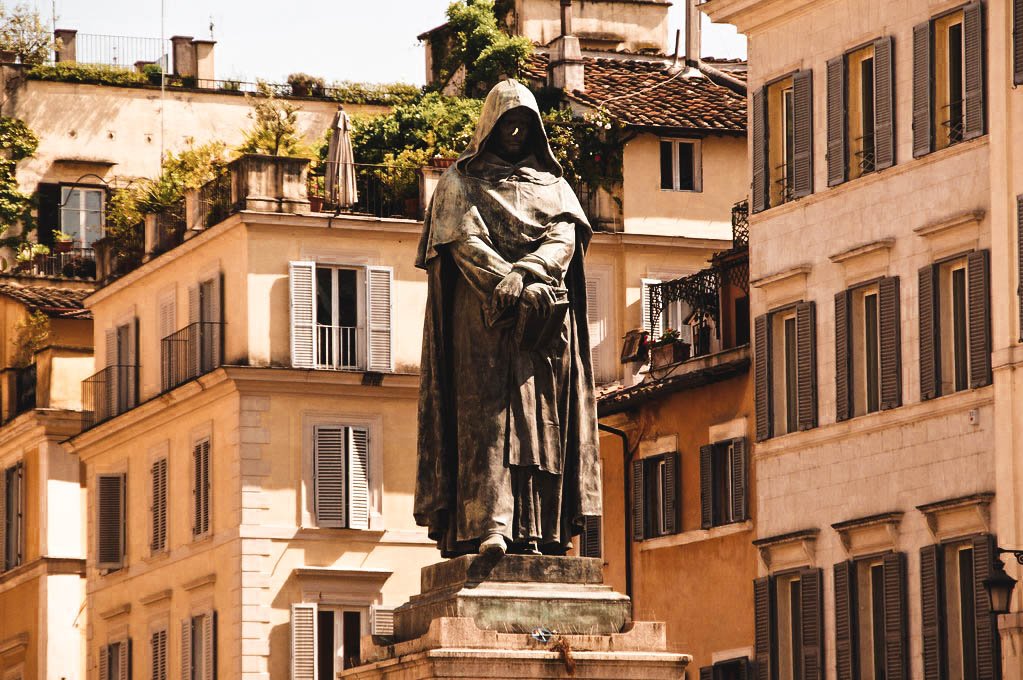
Giordano Bruno
The Eerie Statue of Giordano Bruno
A Martyr of Science
In Campo de’ Fiori stands a statue of Giordano Bruno, a Dominican friar burned at the stake for his revolutionary ideas. His statue is a symbol of intellectual freedom and the harsh penalties for challenging established norms.
A Historical Reminder
Bruno’s belief in a sun-centered universe contradicted the Church’s teachings. His execution in 1600 serves as a grim reminder of the conflict between science and religion.
Visiting Campo de’ Fiori
The square is bustling with activity, from markets to cafes. Bruno’s statue stands as a solemn counterpoint to the lively atmosphere.
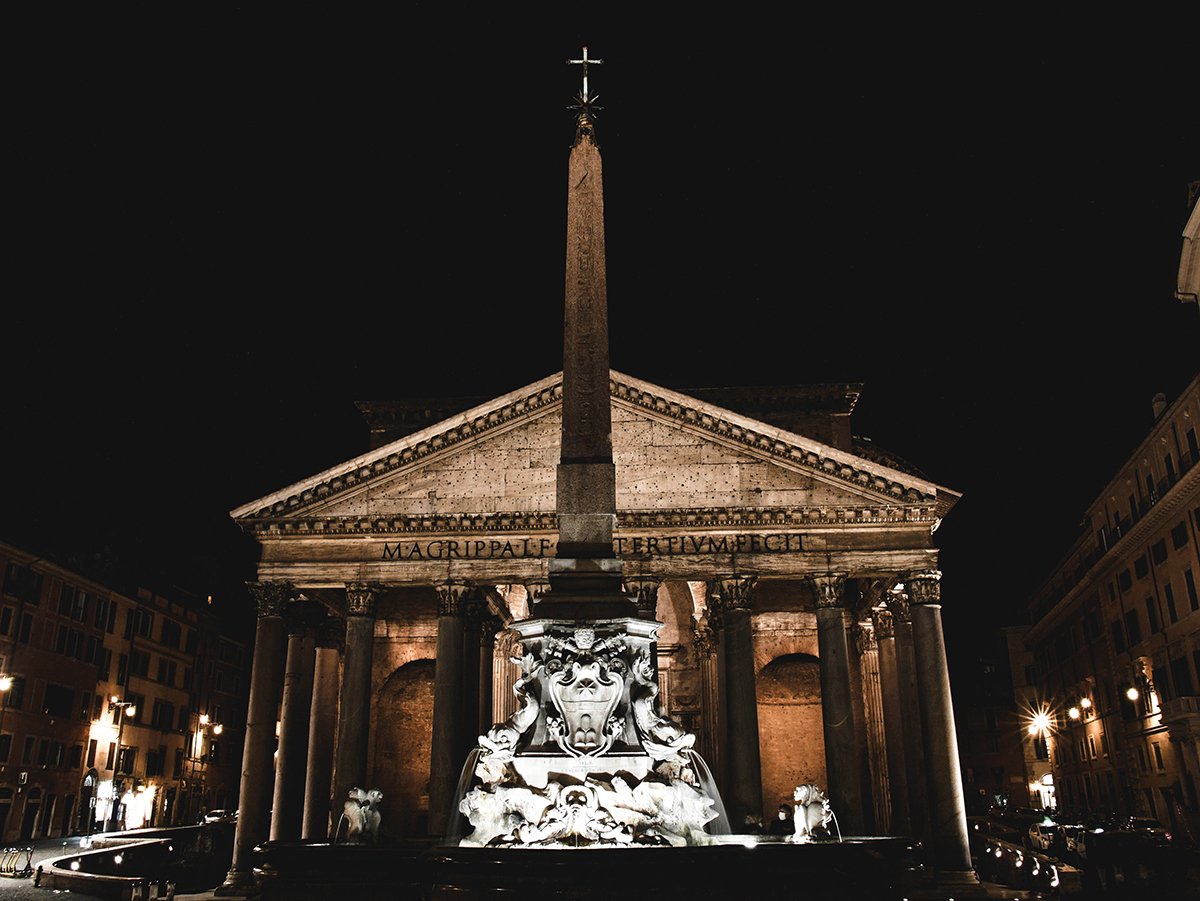
Dark Tour of Rome
Embarking on a Dark Tour of Rome
The Mosaic of Histories
Rome is a city of contrasts, where light and shadow coexist in its streets and stories. Exploring its darker side offers a deeper understanding of its rich and complex history.
Adventure Awaits
From architectural wonders to haunted legends, Rome’s unusual sites promise adventure and intrigue. Each location offers a unique perspective on the Eternal City, making it a must-visit for the weird traveler.
Discover More with Us
Ready to uncover more of Rome’s secrets? Join our community of explorers and share your own discoveries. Adventure awaits in the shadowy corners of Rome—dare to look closer.
Explore these hidden gems, and you’ll find that Rome is more than just a city; it’s an endless story waiting to be told. Happy travels!

